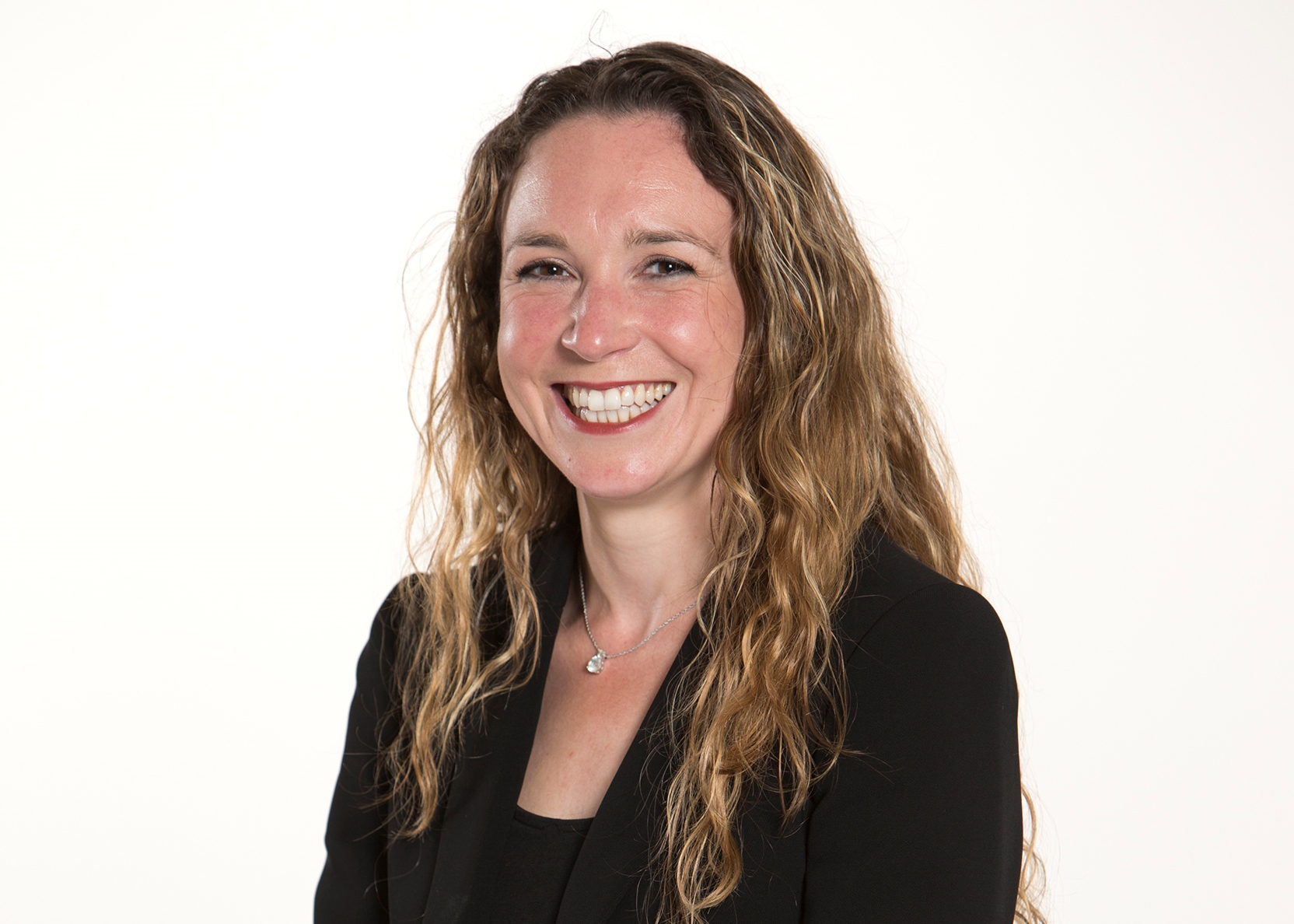Schools Managing Risk Conference – January 2019
8 February 2019
One of Wilsons’ first training sessions of 2019, the annual Independent Schools Conference – which this year focused on managing risk – was well-attended by over 40 education professionals.
Hosted by Wilsons with guest speakers from the NSPCC, Moore Stephens and The Education Partnership, feedback from the day was very positive, including comments like “Well worth visiting. Wish I'd brought my Bursar and Chair of Governors."
 Stephen Oxley, Partner at Wilsons, introduced the day, perhaps pre-empting questions from the audience about what they were likely to be interested in. “We have been engaged in all sorts of interesting cases over the last six months – safeguarding, parent-contract issues, exclusions – the sector is very active at the moment.” He also mentioned that the Wilsons team have been overwhelmed with enquiries about the changes to the Teacher’s Pension Scheme, but that this would likely require a separate conference!
Stephen Oxley, Partner at Wilsons, introduced the day, perhaps pre-empting questions from the audience about what they were likely to be interested in. “We have been engaged in all sorts of interesting cases over the last six months – safeguarding, parent-contract issues, exclusions – the sector is very active at the moment.” He also mentioned that the Wilsons team have been overwhelmed with enquiries about the changes to the Teacher’s Pension Scheme, but that this would likely require a separate conference!
Safeguarding
 Vicky Wilson, Associate at Wilsons, kicked off the session with a look at safeguarding. Vicky explained that when it comes to safeguarding, schools need to consider a number of factors, including facts and circumstances, who is involved, who does the school owe a duty of care to and why, what the safeguarding policy says, local arrangements, who is best placed to investigate – and ultimately, what the desired or necessary outcome might be. It is a complex area, but one which Vicky says is easier if “there is a golden thread of safeguarding which runs throughout the school.”
Vicky Wilson, Associate at Wilsons, kicked off the session with a look at safeguarding. Vicky explained that when it comes to safeguarding, schools need to consider a number of factors, including facts and circumstances, who is involved, who does the school owe a duty of care to and why, what the safeguarding policy says, local arrangements, who is best placed to investigate – and ultimately, what the desired or necessary outcome might be. It is a complex area, but one which Vicky says is easier if “there is a golden thread of safeguarding which runs throughout the school.”
On the subject of safeguarding policies, it is a requirement for schools to review their safeguarding policy at least annually. Vicky highlighted that the policy should refer to the wider importance of environmental/external aspects, or ‘contextual safeguarding’. Factoring in that safeguarding doesn’t happen in a vacuum, it may be wise for educational establishments to update their policies.
Part 5 of the Keeping Children Safe in Education legislation (KCSIE) was discussed in some detail, which covered ‘peer-on-peer abuse’. This can include issues like bullying, cyber-bullying, sexual violence, sexting and initiations, amongst other areas. Vicky explained that this is “an emerging and complex area of safeguarding, and that every member of staff should be aware of the school’s policy and what actions are taken to mitigate the risks.”
 Kevin West and Samantha Nolan from the NSPCC presented the NSPCC Schools Service and the work that it does across the UK, particularly at primary level. They explained that theirs is the only project of its’ kind, aiming to reach every primary school in the UK. The programme seeks to empower children to ask the right questions and to feel they can say no, be ‘Share Aware’ when online and also to be ‘Net Aware’ when downloading apps or games. Samantha explained how the NSPCC take different approaches with different age groups to ensure that difficult and sensitive topics are dealt with clearly and sensitively. For example, explaining that emotional abuse can be explained as "when an adult deliberately hurts you or makes you feel bad on the inside". Sexual abuse can include showing inappropriate films or content online.
Kevin West and Samantha Nolan from the NSPCC presented the NSPCC Schools Service and the work that it does across the UK, particularly at primary level. They explained that theirs is the only project of its’ kind, aiming to reach every primary school in the UK. The programme seeks to empower children to ask the right questions and to feel they can say no, be ‘Share Aware’ when online and also to be ‘Net Aware’ when downloading apps or games. Samantha explained how the NSPCC take different approaches with different age groups to ensure that difficult and sensitive topics are dealt with clearly and sensitively. For example, explaining that emotional abuse can be explained as "when an adult deliberately hurts you or makes you feel bad on the inside". Sexual abuse can include showing inappropriate films or content online.
Samantha also highlighted the ESAT, the Safeguarding in Education Self-Assessment Tool, which is a joint initiative between the NSPCC and the Times Education Supplement (TES). This is a free online tool which provides schools with a step-by-step guide to ensuring schools are meeting best practice safeguarding guidelines.
Safer Recruitment
 On the issue of recruitment safely within the education sector, Sophia Zand, Associate at Wilsons, kicked off succinctly with, “You need to make sure they are who they say they are.”
On the issue of recruitment safely within the education sector, Sophia Zand, Associate at Wilsons, kicked off succinctly with, “You need to make sure they are who they say they are.”
Sophia went on to give her top tips for safer recruitment, which included making sure that your recruitment and selection policy is regularly reviewed and that you treat all candidates equally and fairly. To an air of surprise from the attendees, Sophia explained that a claim can be brought by a job candidate for having been treated unfairly as part of the process, even if they are not employed by your organisation. It isn’t just the children which need to be safeguarded, but also the school.
She added that “job adverts should refer to the necessary checks as well as your safer recruitment statement” and that schools should “…be consistent. The same set of questions must apply to all candidates” to help avoid allegations of discrimination.
Finally, the issue of suspension was discussed. Sophia’s view was that “suspension shouldn’t be an automatic response, and that the leadership team need to think about the nature of the allegation. Do you have no alternative but to suspend? Consider alternatives to suspension, such as redeployment.”
Reputation
 Debbie Ashenhurst, Wilsons’ Reputation Management specialist, gave some insight into what the education sector should consider if on the receiving end of negative publicity.
Debbie Ashenhurst, Wilsons’ Reputation Management specialist, gave some insight into what the education sector should consider if on the receiving end of negative publicity.
Common themes in this area are defamation, privacy, data protection and harassment.
Taking a very practical approach, Debbie discussed the importance of timing. It is possible to be proactive if you are aware of the problem before the press get hold of it, but more often organisations are forced to react to negative publicity which they learn about shortly before or after publication.
Discussing the rapidly evolving media environment – from radio, television and newspapers 30 years ago, to web, blogs, forums, social media and instant messaging – Debbie highlighted that “…all publishers are subject to the law which is developing quickly to keep up with new media channels. Now, content often remains online indefinitely. The challenge is to get the publisher to remove it or amend it to include your side of the story.”
Increasing awareness of public sharing online means that “Defamation isn’t just for celebrities." If the content published has a defamatory meaning and has caused serious harm, potentially an action might be brought.
With respect to the misuse of private information, individuals can bring actions if they had a reasonable expectation of privacy in relation to the disclosed information which trumps other rights such as freedom of expression.
GDPR obviously continues to be a hot topic for the sector. Individuals can bring actions for breach of GDPR and the Data Protection Act 2018 if inaccurate or out-of-date information has been used, or if the data has been processed more than necessary for the purpose. Delisting is becoming increasingly common as a means of removing old defamatory content from Google search results so that it cannot easily be found.
 After a well-deserved coffee break and biscuit, Ann Mathias from Moore Stephens took to the stage to share some of the principles of good governance from a financial perspective.
After a well-deserved coffee break and biscuit, Ann Mathias from Moore Stephens took to the stage to share some of the principles of good governance from a financial perspective.
Ann posited that “the success of a school will really be determined by how well the school is run” and that schools should have a clear organisational purpose, strong leadership which challenges but also instils confidence (a difficult balance).
There should be, where possible, delegation of decision-making and a strategy for prioritising and managing risk. “A risk register is important but needs to be manageable”, Ann explained. “I was visiting a charity recently where they had their risk register up on the wall, on an A3 sheet. It has to be succinct so as many people as possible will take notice of it.”
When thinking about the Board, there needs to be “not just a diversity of individuals, but a diversity of thinking, so the school can progress” said Ann.
Transparency is everything. Schools need to be open and accountable. Ann explained that schools need to be prepared to dive down into potential conflicts of interest. “Arguably you should now be having a conflict of interest return from all the staff in the school.”
Principles of good governance should include:
(a) good information
(b) visibility over information
(c) the ability to direct
(d) a clear structure.
From a financial accountability perspective, key areas for the Board and Senior Leadership Team to consider and challenge include budgets and accounts; legacies or endowments; pupils, fees or staff; premises and expenses; new schools and due diligence; other activities including trading activity and controls and policies.
In terms of what questions governors should be asking, Ann advised that the ‘Rule of Three’ is a good place to start: “What contingency is required in three weeks, three months and three years?”
 Andrew Mackie, Senior Associate at Wilsons, addressed good governance in schools from a legal perspective.
Andrew Mackie, Senior Associate at Wilsons, addressed good governance in schools from a legal perspective.
He began by making the distinction between governors' powers (discretionary - what they can do) and their duties (mandatory - what they must do). He also talked about governance best practice - the should-do's, which are becoming more like must-do's as time goes on.
Andrew outlined the six main fiduciary duties that governors have. These are to:
(a) ensure their school is carrying out its purposes for the public benefit
(b) ensure their school is accountable and transparent
(c) act in the best interests of their school by doing what they consider will further its purposes most effectively
(d) act with reasonable skill and care
(e) comply with the school’s governing document and the law
(f) manage the school’s resources responsibly.
In 2018, only around 1.5% of registered charities made a Serious Incident Report, which has caused the Charity Commission to suspect that not all serious incidents within charities are being reported. The Commission expects to be made aware whenever a charity has experienced financial crimes such as theft, fraud and money laundering, or has received significant donations from unknown or anonymous sources. As might be expected, suspicions, allegations or incidents of abuse or mistreatment of pupils are also considered serious incidents, which should be reported to the Commission even if the Board has already notified the police or other appropriate authority.
Other areas Boards should report include insolvency, criminal investigation or proceedings, risk of reputational damage or disqualification of governors.
“There is a legal duty to report serious incidents to the Charity Commission as part of the school’s annual return” concluded Andrew, "but the Charity Commission expects to hear about them straight away. The Commission will not necessarily want to investigate every incident but it will want to know that the governors have an action plan and that they are dealing with the matter appropriately. Clearly, it will be much harder for the governors to demonstrate that they have things under control if the Commission hears about the incident from a reporter, rather than from the school."
 Handling family disputes is an area which schools are increasingly involved with. Sarah Wood-Heath, Senior Associate in the Wilsons’ Family team, explained that “Schools often find themselves in the middle of competing interests, and the answers are not always clear.”
Handling family disputes is an area which schools are increasingly involved with. Sarah Wood-Heath, Senior Associate in the Wilsons’ Family team, explained that “Schools often find themselves in the middle of competing interests, and the answers are not always clear.”
The overarching principle, which needs to be determined first, is who has ‘parental responsibility’ for the child. Parental responsibility confers the power to make important decisions in relation to a child to include consenting to medical treatment and having a say in the child's education. A person with parental responsibility is entitled to information about the child and entitled to be informed about meetings involving the child.
Court orders may have to be considered when determining parental responsibility.
A Child Arrangements Order sets out who the child lives with and spends time with.
A Prohibited Steps Order imposes restrictions; the court will specify certain steps which cannot be taken by a parent.
A Specific Issues Order determines a specific question in relation to the child.
“Once you have established the legal position, you need to manage the situation,” explained Sarah. “The overarching principle is that the welfare of the child is paramount. If there are any doubts, it is worth taking a step back and seeking independent legal advice.”
Bill Brown, from the Education Partnership, which provides governance and compliance expertise to schools, rounded the day off with a lively and candid view of the inspection system for independent schools. He gave an overview as to the differences between the Ofsted and the ISI approach to inspections explaining how schools should decide which inspection criteria bests suits their particular circumstances. Bill opened with an example of a school he was working with. He was under no doubt they would have no problems when the inspectors arrived. Why?
“I realised very quickly that they were going to follow the rules to the letter, no shades of grey, no personal interpretation. The children were always at the centre of concern. Whether I spoke with the Head, or the SLT, or the Head of Boarding – it was like speaking to one person. They weren’t just singing from the same hymn sheet, they were the same hymn sheet.”
Bill explained that there are 408 checks to be made between the ages of 3 and 18 within independent schools inclusive of boarding provisions (covering the ISSR, EYFS and the NMS or RSS Boarding Standards). However, the pressure on ISI as to the way they now inspect means that they no longer provide the intensive support to schools during the inspection which was the norm only a few years ago. Therefore, whilst ISI can no longer give the same level of support during an inspection, they do have excellent courses covering all aspects of inspection. This also applies to ISA (Independent Schools Association) who provide exceptional high-quality training in readiness for inspection, an example of which is demystifying the SCR.
“Schools don’t need to panic, they can get themselves ready”, explained Bill. “The difficulty that schools have with inspections is that they don’t know how to go on the journey. They don’t know where to begin.” Don’t just write a policy for sake of having one. “Policies and procedures have no value unless they are living documents.”
Bill highlighted a few areas which Leadership Teams should not treat lightly. “You would be amazed just how very, very seriously inspectors take British Values.” Also, when it comes to data, “In this climate, in any school, your recording systems need to be more than adequate showing the progress of children over time with comparisons being made with national data. Whether you are a primary, secondary or academy, you must get CPOMS (Safeguarding and Child Protection Software for Schools) or an equivalent system. You need a single central register (SCR) that is fully compliant with the regulations, which is amended over time. The SCR is the most complex of documents. Safer recruitment will always be a priority for both Ofsted and ISI. Where schools have boarding provision, the SCR also applies to either NMS or RSS.”
Bill explained that schools cannot risk failing the compliance of the ISI Regulatory Compliance or the Educational Quality with Focussed Compliance or the Ofsted integrated inspection – giving a summary of the eight parts of the ISSR. The damage, resulting from non-compliance, will be there for all to see. “Schools would also be vulnerable to parents and students, which could have an unintended domino effect, thus adversely damaging the reputation of the school. I have seen schools close as a direct outcome of this. You do not want to fail, resulting in a statutory notice from the DfE, requiring an action plan leading to a programme monitoring inspection (PMI).”
This domino effect also comes into play where schools fail safeguarding, governance, leadership and management and especially so in the case of Part Three of the ISSR, which encompasses all aspects of welfare, health and safety. Bill emphasised that safeguarding must be the core priority. The essential importance of Governance, Leadership and Management (Part 8 of the ISSR) was also summarised.
Bill concluded his session with some robust advice: “Stick to the rules, to the letter. Apply them proportionately. Be one single cohesive team. Do exactly what it says on the tin and make sure the inspectors know that.” A key factor is in ensuring that a member of the SLT is trained as an inspector. “There cannot be a mismatch between policy and practice.” Schools that are fully compliant are inspection ready every day thus protecting the interests of all stakeholders (inclusive of proprietors, staff, children and parents).
If any of the above issues resonate and you’d like to have an informal and confidential discussion, please contact Vicky Wilson on 01722 427 756 or email her at vicky.wilson@wilsonsllp.com




